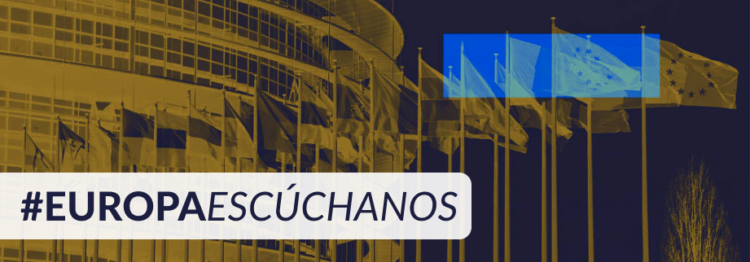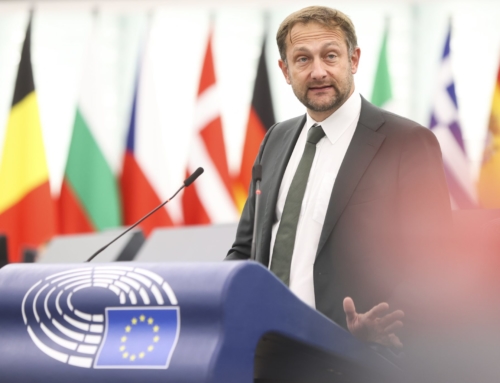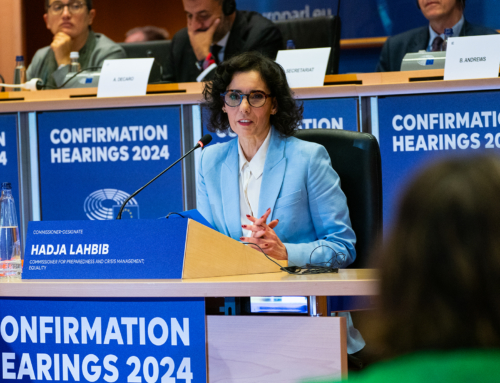UPDATE: The Committee on Petitions (PETI) and the European Commission both considered the Ley Celaa during their last meetings. In their presentations, the five petitioners presented arguments to protect the freedom of education in Spain.
Meanwhile, the European Commission analysed just one of the five petitions submitted to PETI and returned only a primary assessment of the CONCAPA petition (0627/2020). On this regard, it emphasised that education falls within the member states’ competence and pointed out that EU jurisdiction plays a limited role in the educational sector of member states. The Commission did not find a breach of EU law by the Spanish government, based on the limited information available. It left the matter in the hands of Spanish national authorities, citing the lack of grounds for its own intervention.
After the discussion, the PETI Committee kept all the petitions open and requested several follow-up actions. First, PETI requested that the Commission send its opinions on the four remaining petitions (1420/2020, 1424/2020, 0076/2021 and 103/2021). Secondly, the Committee requested that the Commission investigate the matter not through the lens of education competences, but with a view toward possible breaches of parents’ freedom of choice to decide on their children’s education, as well as toward violations of educational pluralism.
The PETI Committee, in an effort to assess the situation in its entirety, sought to bring relevant EU groups into the discussion. First, PETI requested the LIBE Committee’s opinion since the petition concerns liberties. Second, PETI forwarded relevant information on the petitions to the EP intergroup on disabilities.
Furthermore, PETI decided to engage the Spanish government as well. It asked the Spanish ministry of education to certify that the law did not violate any educational liberties and rights. It also asked the Spanish government to certify that Spain complied with the measures set out in the European Semester since the European Semester’s plan for Spain includes reform of the educational system.
For further information, please find here the agenda of the PETI Committee. Page 4 contains the precise information on the petitions examined during the meeting).
On 30 December 2020, the Organic Law amending the Organic Law 2/2006 of May 3rd on Education was published on the Spanish Official Journal, after a relatively short procedure, in the general framework of the current public health crisis. This new law introduces several measures in favour of public education at the expense of concerted education, i.e. private social initiatives partly sustained with public funds. This would directly limit the right of choice of families between various pedagogical options, especially regarding confessional religion.
Serious concerns regarding the respect of the rule of law and the democratic legitimacy of this new legislation
Tabled in the midst of the State of alarm motivated by the pandemic, and adopted at the same time as the 2021 Budget, the timing for changing such a crucial legislation appears problematic. Moreover, the new challenges of online schooling and sanitary restrictions must be cautiously addressed, and would have needed the consultation of experts and civil society on the matter, especially parents and family associations. It is to be regretted that those who know the best children’s needs have been completely left out of the procedure.
A violation of parents’ responsibility as primary educators
This proposed law not only goes against the continuous jurisprudence of the Spanish Constitutional Court, but also neglects the fundamental responsibility of parents to choose their children’s education in accordance with their ethical, pedagogical and religious convictions, as stated in Article 2 of Protocol No. 1 to the European Convention on Human Rights and the Article 10 and 14 of the EU Charter of Fundamental Rights.
A violation of children best interests to access quality education
This law would also penalise the access of children to education, as it would mean to progressively dismantle a successful long-standing system of public financial support to non-State schools. Every child is different and needs to be given the most appropriate environment to grow emotionally, mentally and academically, which starts with a pluralism of pedagogical options.
FAFCE’s Spanish associated member, Foro de la Familia, started a campaign #EuropaEscúchanos to raise awareness on this issue at the EU level.







